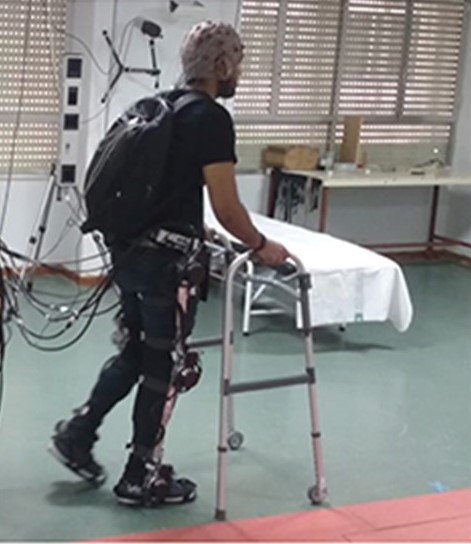Some years ago, our department had been witness to a remarkable story of resilience and triumph over adversity. Among the patients we received from Afghanistan, one individual stands out as a survivor of a bomb explosion that left him with a severe Spinal Cord Injury. Despite surviving the incident in his home country, the lack of adequate treatment for his functional health made daily activities challenging, leading to dependence on others.
The absence of proper medical rehabilitation facilities exacerbated his condition. However, a turning point came when a friend managed to bring him to Germany, where he arrived immobile and reliant on assistance. Following several months of intensive rehabilitation, a transformation unfolded. Gradually reducing his dependence on others, he began walking with the aid. Remarkably, he reignited his aspiration to become an engineer, illustrating the success and potential of rehabilitation.
This heartening success story prompts a call for equal opportunities for rehabilitation on a global scale. The necessity of sending individuals to developed countries for treatment should not be a prerequisite. Ensuring that patients facing challenges in daily activities can actively reintegrate into society, pursue work, attend school, engage in worship, and enjoy leisure activities in their places of origin is crucial.
Despite the clear benefits of rehabilitation, it remains a low priority for many governments, especially in low- and low-middle-income countries. The prevalence of disabilities, whether from birth or resulting from accidents, war, natural disasters, amputations due to diabetes, cancer, infections, etc., is on the rise in developing nations. These individuals require functional healthcare, including medical rehabilitation, to enable active participation in society.
While the World Health Organization (WHO) recognizes disability as interconnected with public health, human rights, and development, governments often neglect this critical aspect. The evident potential of people with disabilities to contribute to development emphasizes the urgent need to prioritize rehabilitation.
Global awareness is essential, particularly in low- and low-middle-income countries, to elevate medical rehabilitation to the same status as other health strategies like prevention, promotion, treatment, and palliative care. This shift is crucial to ensuring that individuals with disabilities can lead dignified lives alongside others, enjoying equal opportunities in every aspect of their existence.

